Preparing businesses for next generations of leaders
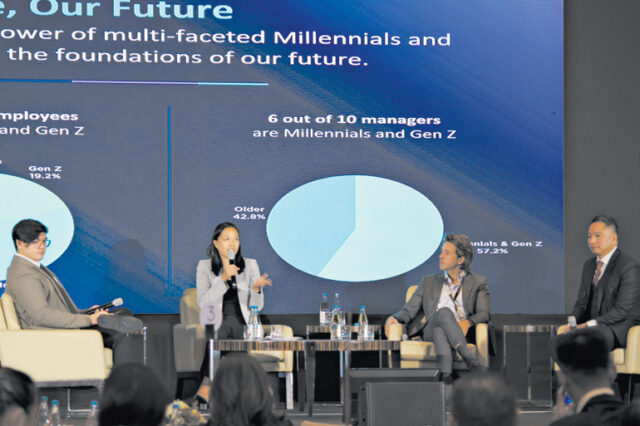
By Bjorn Biel M. Beltran, Special Features and Content Assistant Editor
The world is nearly a quarter into the 21st century, and the modern workplace could not be more different from it was back then. The passage of time has quickly introduced technological advancements — like high-speed, long-distance, real-time communications and on-demand computing through mobile and artificial intelligence technology — to enhance the way we work and conduct our businesses.
Another key aspect of such change in the workplace is the integration of younger generations into the workforce. With their fresh perspectives, innovative ideas, and digital fluency, young professionals bring a unique set of skills and experiences that can drive growth, foster creativity, and propel businesses forward.
In the final panel discussion during the recently concluded BusinessWorld Forecast 2024 last Nov. 22, it was mentioned how business leaders today are restructuring their company in order to meet the demands of millennials and Generation Z employees (Gen Zs) and to realize their leadership potential.
To fully utilize the abilities of the two generations towards handling leadership positions, businesses are adopting flatter organizational structures to accommodate young leaders’ penchant for collaboration and openness.
“A command-and-control structure does not work anymore,” Carlos Ramon C. Aboitiz, chief corporate services officer at Aboitiz Power Corp., said. “We need to allow [Gen Zs and millennials] to articulate their own vision, and kill policies that no longer make sense.”
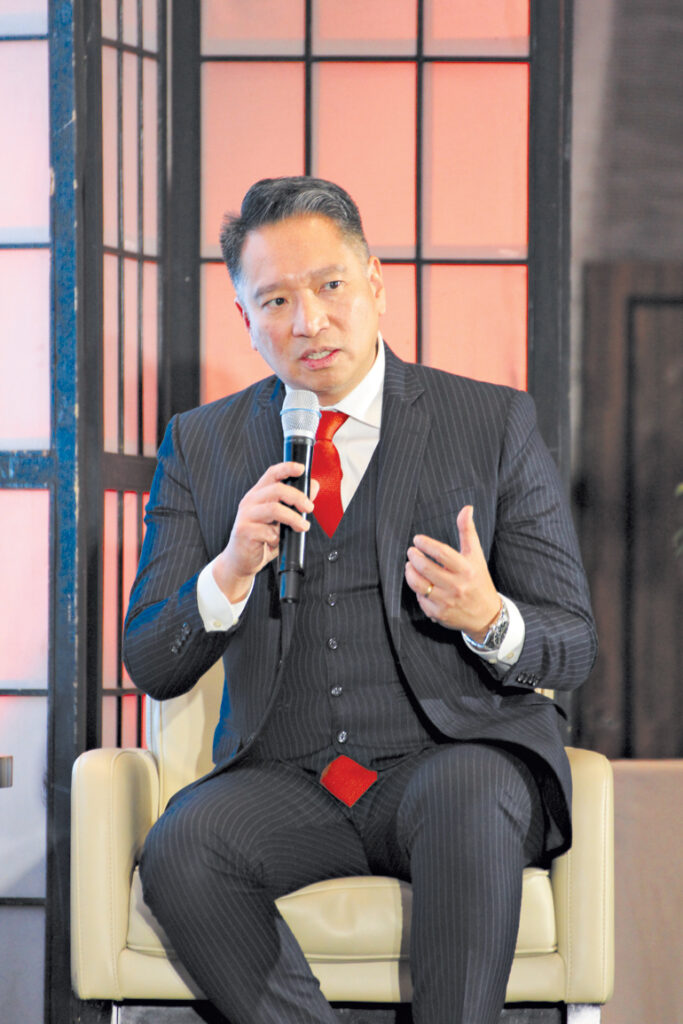
Jericho P. Go, senior vice-president and business unit general manager at Robinsons Land Corp, said, “At management, it’s important to recognize the need to have an open mind. A lot of new ideas are being generated by young people, and it’s important that we emphasize that they are given free space to be able to showcase their intelligence and the things they want to bring about.
“More importantly, as leaders it is important to have this trait of having empathy. Being able to assure and extend that warmth to colleagues so that they would all be encouraged in the activities that they undertake. Agility is also key. Being able to ask and respond accordingly so that those ideas can be able to brought to fruition,” Mr. Go added.
Mr. Aboitiz said that, as the Aboitiz Group of Companies is over a hundred years old, their heritage and family DNA underpin a mindset of stewardship and generational perspective.
“We see the world as an ever-changing one from one transition to another, and we embrace adaptability as a core value in our group,” he said. “And this ensured our survival for a long span of time. We also embrace the diversity that comes with generational change in norms, behaviors, and our environments as opportunities for advancing both our purpose and our profit.”
As the energy sector is one that is seeing the most transformation due to advancements in renewable energy technology alongside increasing pressures from climate change, Mr. Aboitiz said that it is the perfect set-up for young leaders to succeed.
“The state of transformation and transition lends itself to new perspectives and new capabilities, wherein new generations untethered to the old ways of thinking and being play an enormously important role for us. They help bring new ideas to help us figure out how to decarbonize our energy sector. They are forging the path in our pursuit of the data-driven decision-making process with their ability to learn and apply data science and add new AI tools to business processes,” he said.
This is a common point repeated throughout the panel discussion, as one of the greatest assets that younger generations bring to the table is their fresh perspectives. Growing up in a digital age, they have a unique understanding of technology, social media, and global connectivity.
This fresh outlook allows them to challenge traditional norms, question existing practices, and offer innovative solutions to complex problems. By embracing their fresh perspectives, organizations can tap into a wellspring of creativity, enabling them to adapt to changing market trends and maintain a competitive edge.
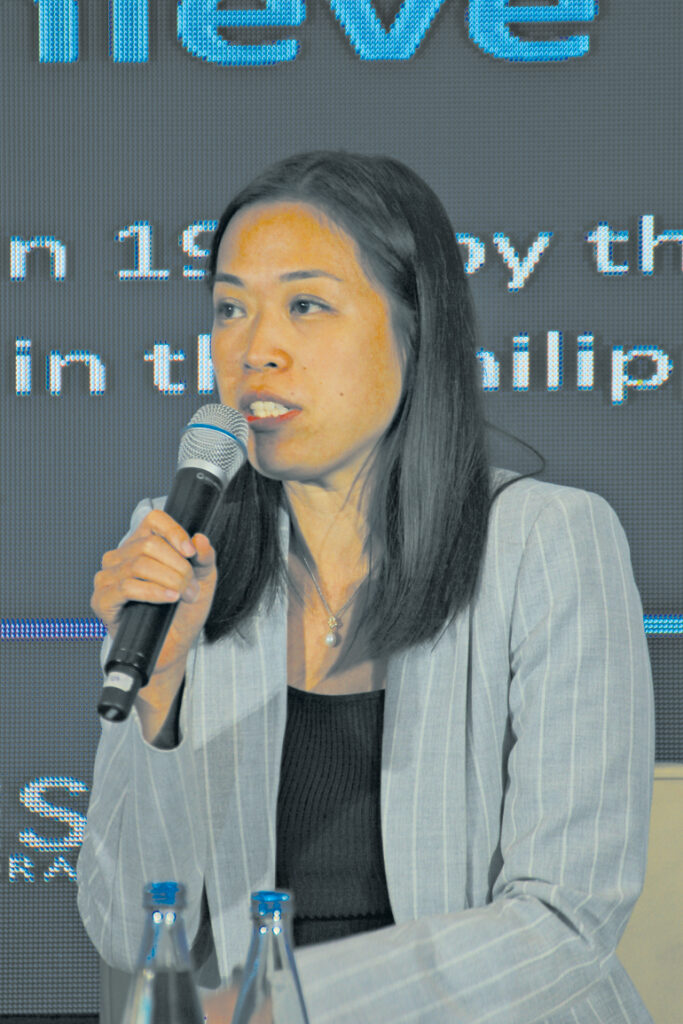
“It’s their ability to quickly harness technology and new ways of working. I personally saw a lot of that during the pandemic. When we had to do a lot of process adjustments that were normally manual or face-to-face, our young leaders who had a familiarity with low-code, no-code process automation were able do it quickly,” Isabelle Gotianun Yap, executive director and vice-president at East West Banking Corp., said.
“Because of that, we were able to start a committee moving forward about creating a community of young leaders who are optimizing processes using technology. Most of those people are in the millennial and even the Gen Z category.”
As the younger generations have grown up in an era of constant change, they are well-versed in adapting to new technologies and are quick to embrace emerging trends. Their ability to navigate the digital landscape effortlessly provides organizations with a valuable advantage. But that does not mean businesses should not focus on their development.
On this point, Ms. Yap noted the need to continuously improve learning programs and tools for sustainability, alongside providing more and better quality feedback.
“They need opportunities to pilot programs and proofs-of-concept, which the company can do small-scale. Give them that safe space to fail,” Mr. Go said.
“Crazy ideas may not be crazy after all. Voice it, put it in a business plan, and justify its worth in the company,” he added, noting the importance of embedding lifelong learning in company initiatives.”
Encouraging their participation and involvement in decision-making processes can allow companies tap into the young generations’ innovative thinking and drive transformative change. Their eagerness to experiment, take risks, and challenge the status quo can help organizations remain agile in a fast-paced business environment.
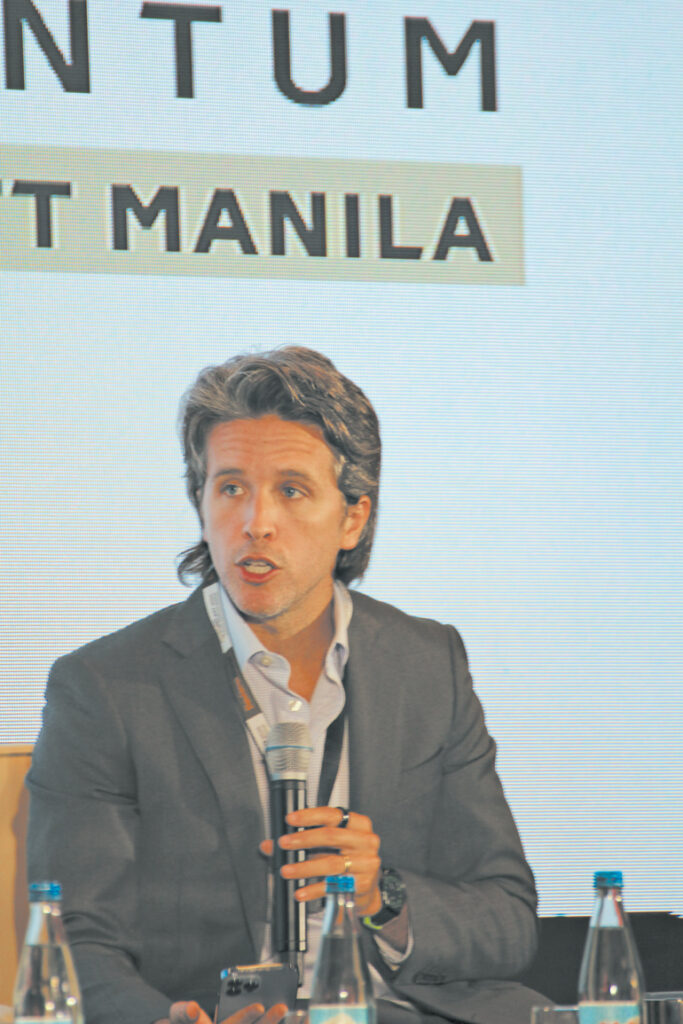
Embracing younger generations in the workforce is not just about gaining their skills; it is also about fostering collaboration and bridging the generation gap. There is strength to be found in age diversity, Mr. Aboitiz noted, as it is through creating a diverse and inclusive environment that organizations can facilitate knowledge sharing and mentorship opportunities between different age groups.
“We should not overplay these generational changes. There is nothing to be fearful of,” Mr. Aboitiz said. “[Current] leaders need to overcome [these fears].”
“Understand how our behaviors and expectations are different, and design an environment to allow for the coming together of these differences,” he added.
This exchange of ideas and experiences can lead to enhanced learning and growth for both younger professionals and their more experienced counterparts. It also fosters a sense of mutual respect and understanding, ultimately strengthening the overall fabric of the organization.
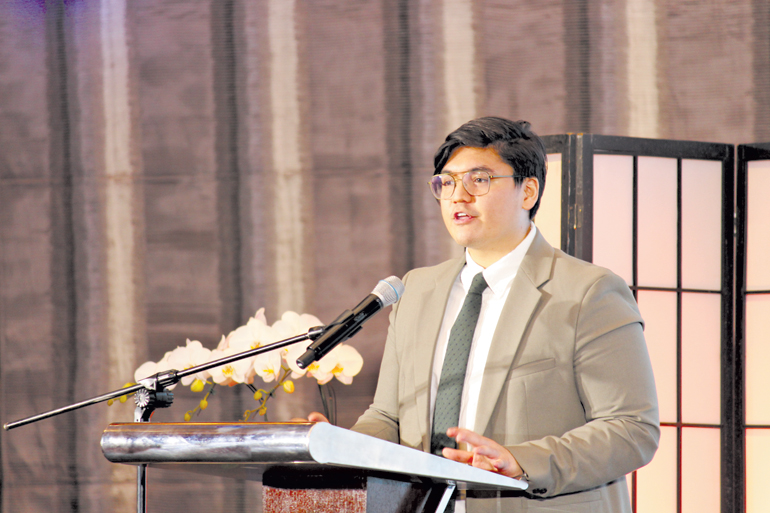
“What’s really important with leaders is that we should be centered around a common purpose. Not just a shared purpose, but a shared culture across generations,” Ms. Yap said.



